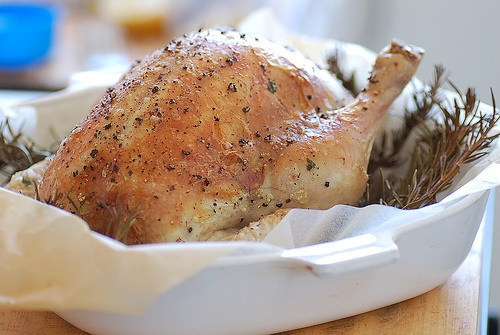protein absorption
 In most support group settings, there is always one main question that comes up, "How much protein you can absorb at one time?"
In most support group settings, there is always one main question that comes up, "How much protein you can absorb at one time?"
Most will tell you that it is about 30-40 grams, however, the fact is that there isn't any conclusive research. Some tend to think that it's about 9 grams an hour. Who knows? Besides everyone's body is different and absorption levels vary in individual cases, especially for gastric bypass patients.
During my personal journey, I was very compliant with my protein and diet. I always got my protein supplements in everyday, although my protein blood levels were sufficient, they were always on the low end of the chart (even before surgery). After returning to a "normal" maintenance plan for life, my protein comes from the food I eat, not supplements. Since I have been on a regular maintenance diet, my protein levels are higher...everyone will have a different experience.
Maybe the question could be, "How much do we need and how can we appropriately work that into a well balanced diet?" Spacing out your protein grams throughout the day keeps hunger at bay and your blood sugar level. You can see from the chart below an average amount of protein you would consume at one meal, this could be a good guide to follow.
After all, when we get right down to it, we eat for nutrition and energy, not just to mark off the numbers on a chart. Our focus turns from rules to returning to health and wellness. So with that in mind let's take a look at serving sizes and how much protein each food contains. The chart below will help guide you. Remember, if you are eating smaller amounts based on your current food phase, you should be getting between 70 and 100 grams per-day. That means that the remainder of your protein should be in supplement form. Protein grams on this chart are based on a "regular diet" serving size.* See "food phase" entries for more information on what a regular diet looks like.
On average an ounce of meat or fish has approximately 7 grams of protein.
Beef
Hamburger patty, 4 oz – 28 grams protein
Steak, 6 oz – 42 grams
Most cuts of beef – 7 grams of protein per ounce
Chicken
Chicken breast, 3.5 oz - 30 grams protein
Chicken thigh – 10 grams (for average size)
Drumstick – 11 grams
Wing – 6 grams
Chicken meat, cooked, 4 oz – 35 grams
Fish
Most fish fillets or steaks are about 22 grams of protein for 3 ½ oz (100 grams) of cooked fish, or 6 grams per ounce
Tuna, 6 oz can - 40 grams of protein
Pork
Pork chop, average - 22 grams protein
Pork loin or tenderloin, 4 oz – 29 grams
Ham, 3 oz serving – 19 grams
Ground pork, 1 oz raw – 5 grams; 3 oz cooked – 22 grams
Bacon, 1 slice – 3 grams
Canadian-style bacon (back bacon), slice – 5 – 6 grams
Eggs and Dairy
Egg, large - 6 grams protein
Milk, 1 cup - 8 grams
Cottage cheese, ½ cup - 15 grams
Yogurt, 1 cup – usually 8-12 grams, check label
Soft cheeses (Mozzarella, Brie, Camembert) – 6 grams per oz
Medium cheeses (Cheddar, Swiss) – 7 or 8 grams per oz
Hard cheeses (Parmesan) – 10 grams per oz
Beans (including soy)
Tofu, ½ cup 20 grams protein
Tofu, 1 oz, 2.3 grams
Soy milk, 1 cup - 6 -10 grams
Most beans (black, pinto, lentils, etc) about 7-10 grams protein per half cup of cooked beans
Soy beans, ½ cup cooked – 14 grams protein
Split peas, ½ cup cooked – 8 grams
Nuts and Seeds
Peanut butter, 2 Tablespoons - 8 grams protein
Almonds, ¼ cup – 8 grams
Peanuts, ¼ cup – 9 grams
Cashews, ¼ cup – 5 grams
Pecans, ¼ cup – 2.5 grams
Sunflower seeds, ¼ cup – 6 grams
Pumpkin seeds, ¼ cup – 19 grams
Flax seeds – ¼ cup – 8 grams
_____________________________________________________________________________________
*The definition of portion size is dependant upon the amount of food you choose to eat. In other words, there is no standard portion size. For example, a toddler’s portion size will be much smaller than an adult’s portion size. Alternatively, a serving size is a standard amount used to “eye ball” or to give advice about the quantity of food eaten.
References (4)
-
 Response: pruvit keto in australia
Response: pruvit keto in australia -
 Response: whey protein powder online
Response: whey protein powder online -
 Response: ayurvedic medicine for obesity
Response: ayurvedic medicine for obesity -
 Response: Testosterone deficiency
Response: Testosterone deficiency

Reader Comments